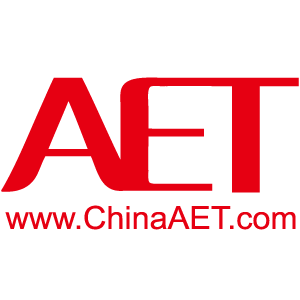突发:美国撤回对华为的某些芯片出货许可,加强申请审核
2021-01-19
来源:半导体行业观察
据路透社报道,知情人士称,特朗普政府通知包括芯片制造商英特尔在内的华为供应商,他们计划吊销其向华为出售芯片的某些许可证,并打算拒绝向该电信公司供应产品的数十种其他申请。
这项行动可能是共和党总统唐纳德·特朗普(Donald Trump)对华为技术公司设置的的最后一次障碍。这是他们削弱世界最大电信设备制造商的最新举措。该公司称,这是对美国国家安全和外交政策利益的威胁。
这些通知是在特朗普执政的最后几天,美国针对中国的一连串动作中做出的。民主党总统拜登将于周三宣誓就任总统。
针对这件事,英特尔公司发言人没有立即发表评论,商务部发言人也没有立即发表评论请求。
路透社从一个电子邮件中看到,半导体行业协会周五表示,商务部已发布“意图拒绝大量出口至华为的许可证申请,并撤销至少一份先前签发的许可证。” 一位不愿透露姓名的知情人士说,其中有不止一次撤销。一位消息人士称,他们从四家公司拿回了八个授权(eight licenses were yanked from four companies.)。
两名消息人士称,日本闪存芯片制造商Kioxia Corp被吊销了至少一份许可证。该公司以前称为东芝存储公司,但他们并没有回应置评。
半导体协会的电子邮件表示,这些行动涉及半导体行业的“广泛产品”,并询问公司是否已收到通知。
该电子邮件指出,这些公司在过去几个月内一直在等待出货许可,而在特朗普政府还不到一周的执政时间里,应对拒绝是一个挑战。
该半导体集团的发言人没有立即回应置评请求。
收到“拒绝意图”通知的公司有20天的响应时间,而商务部有45天的时间将决定中的任何更改告知公司,否则这些更改将成为最终决定。然后,公司将有45天的上诉时间。
美国于2019年5月将华为列入商务部的“实体清单”,限制供应商向该公司出售美国商品和技术。
但是,在美国提高对该公司的限制时,某些销售被允许,而其他销售则被拒绝,包括扩大美国的授权范围,以要求获得使用美国技术在国外制造的半导体的销售许可。
知情人士说,在采取最新行动之前,约有150项许可证正在申请价值1200亿美元的商品和技术,由于各种美国机构无法就是否应授予这些许可证达成共识,因此该许可证被搁置了。
消息人士称,还有2,800亿美元的华为商品和技术许可尚未得到处理,但现在面临被拒绝的可能性更高。
8月的一条规则说,具有5G功能的产品可能会被拒绝,但是不太先进的技术的销售将视具体情况决定。
消息人士说,从1月4日开始,美国在与商务,州,国防和能源部的高级官员举行的六次会议上做出了最新决定。该知情人士说,官员们制定了有关哪些技术可以支持5G的详细指导,然后应用了该标准。
消息人士说,这样做,官员们拒绝了大约150份有争议的申请中的绝大多数,并吊销了八份许可证,以使这些申请与新的拒绝一致。
在美国采取行动之前,美国商务部最近的特朗普任命人科里·斯图尔特(Corey Stewart)施加了压力,他在政府结束后被聘用了为期两个月的代理人后,希望推行强硬的中国政策。
美国在执政期间以其他方式将华为作为目标。华为首席财务官孟晚舟于2018年12月在美国被捕,在加拿大被捕。华为创始人的女儿孟和公司本身都被指控误导银行关于公司在伊朗的业务。
孟说她是无辜的。华为否认了其控诉,表示无罪。起诉书还包括违反美国对伊朗的制裁以及密谋窃取美国技术公司的商业秘密的指控。
附路透社原文:
NEW YORK/WASHINGTON (Reuters) - The Trump administration notified Huawei suppliers, including chipmaker Intel, that it is revoking certain licenses to sell to the Chinese company and intends to reject dozens of other applications to supply the telecommunications firm, people familiar with the matter told Reuters.
The action - likely the last against Huawei Technologies under Republican President Donald Trump - is the latest in a long-running effort to weaken the world's largest telecommunications equipment maker, which it says is a threat to U.S. national security and foreign policy interests.
The notices came amid a flurry of U.S. efforts against China in the final days of Trump's administration. Democrat Joe Biden will take the oath of office as president on Wednesday.
An Intel Corp spokesman had no immediate comment, and a Commerce Department spokesman did not immediately return requests for comment.
In an email seen by Reuters documenting the actions, the Semiconductor Industry Association said on Friday the Commerce Department had issued “intents to deny a significant number of license requests for exports to Huawei and a revocation of at least one previously issued license.” Sources familiar with the situation, who spoke on condition of anonymity, said there was more than one revocation. One of the sources said eight licenses were yanked from four companies.
Japanese flash memory chip maker Kioxia Corp had at least one license revoked, two of the sources said. The company, formerly known as Toshiba Memory Corp, could not immediately be reached for comment.
The semiconductor association's email said the actions spanned a “broad range” of products in the semiconductor industry and asked companies whether they had received notices.
The email noted that companies had been waiting “many months” for licensing decisions, and with less than a week left in the administration, dealing with the denials was a challenge.
A spokesman for the semiconductor group did not immediately respond to a request for comment.
Companies that received the “intent to deny” notices have 20 days to respond, and the Commerce Department has 45 days to advise the companies of any change in a decision or it then becomes final. Companies would then have another 45 days to appeal.
The United States put Huawei on a Commerce Department “entity list” in May 2019, restricting suppliers from selling U.S. goods and technology to the company.
But some sales were allowed and others were denied while the United States ratcheted up the restrictions against the company, including expanding U.S. authority to require licenses for sales of semiconductors made abroad with American technology.
Before the latest action, some 150 licenses were pending for $120 billion worth of goods and technology, which had been held up because various U.S. agencies could not agree on whether they should be granted, a person familiar with the matter said.
Another $280 billion of licenses for goods and technology for Huawei still have not been dealt with, the source said, but now face a higher likelihood of denial.
An August rule said that products with 5G capabilities were likely to be denied, but sales of less sophisticated technology would be decided on a case-by-case basis.
The United States made the latest decisions during a half dozen meetings starting on Jan. 4 with senior officials from the departments of Commerce, State, Defense and Energy, the source said. The officials developed detailed guidance with regard to which technologies were capable of 5G, and then applied that standard, the person said.
By doing that, the officials denied the vast majority of the roughly 150 disputed applications, and revoked the eight licenses to make those consistent with the new denials, the source said.
The U.S. action came after pressure from a recent Trump appointee in the Commerce Department, Corey Stewart, who wanted to push through hard-line China policies after being hired for a two-month stint in the agency at the end of the administration.
The United States has targeted Huawei in other ways during the administration. Meng Wanzhou, Huawei's chief financial officer, was arrested in Canada in December 2018, on a U.S. warrant. Meng, the daughter of Huawei's founder, and the company itself were indicted for misleading banks about the company's business in Iran.
Meng has said she is innocent. Huawei has denied the claims of spying and has pleaded not guilty to the indictment, which also includes charges of violating U.S. sanctions against Iran and conspiring to steal trade secrets from American technology companies.

